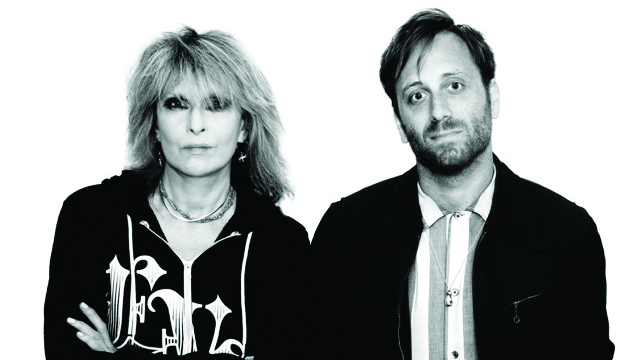Eight years after the last Pretenders album, Christine Ellen Hynde has reactivated her dormant band name as a 65th birthday present to herself. Originally intended as a sequel to Stockholm, her 2014 solo debut, Alone evolved into a Pretenders project after Hynde began working with fellow Akron, Ohio native Dan Auerbach of the Black Keys in his Nashville studio.
Of course, the line between Hynde’s solo and band albums is fuzzy, since she is the founder and sole permanent member of the Pretenders. In any case, Alone continues the flirtation with rough-edged country rock that partly defined 2008’s Break Up The Concrete. Backed by a team of Nashville veterans, the rootsy sound is purposely unpolished and spontaneous, but the honey in the sawdust is Hynde’s instantly recognisable voice that hovers over every song like heady perfume.
An appealingly defiant streak of anti romance runs through Alone, especially the title track, a sloppy garage-blues shuffle with a sardonic lyric about the joys of being single. ‘I’m at my best, I’m where I belong, alone,’ Hynde shrugs in a wry, half-spoken drawl that Lou Reed would recognise. Love takes another cold shower in Never Be Together, a twangy big-band arrangement in which Hynde’s woozy voice oozes eroticised languor, even when knocking back an unsuitable suitor. Sassy, classy and counter intuitive.
Elsewhere, Hynde gets gooey-eyed. The Dylan-esque twist and tumble of Blue Eyed Sky offer up a gorgeous folk-rock serenade to an elusive, alluring mystery man. But Hynde won’t score any feminist points with The Man You Are, a chiming shimmer-ballad laying out her pitifully low expectations of a lover: no flowers, no compliments, no money, just be true to yourself. ‘When a woman loves a man, she’ll do anything he asks,’ she coos coquettishly. Come on, Chrissie! Aim a bit higher, love.
Alone veers into sketchy saloon-bar jamming at times, and contains a couple of clunky makeweight numbers, but the raw production and artfully basic songcraft reward repeated spins. Likewise Hynde’s lyrics, which sometimes only reveal their bone-dry wit over time. A case in point is I Hate Myself, a vaguely Spector-ish foot-stomper full of self-dramatising lines with their tongue firmly planted in Morrissey’s cheek. ‘I hate myself upfront, I hate myself from behind…’
Hynde may not win over many new converts with this old-school collection, but the rich soil of classic Americana is a fine place for one of our greatest rock voices to find fresh inspiration.

